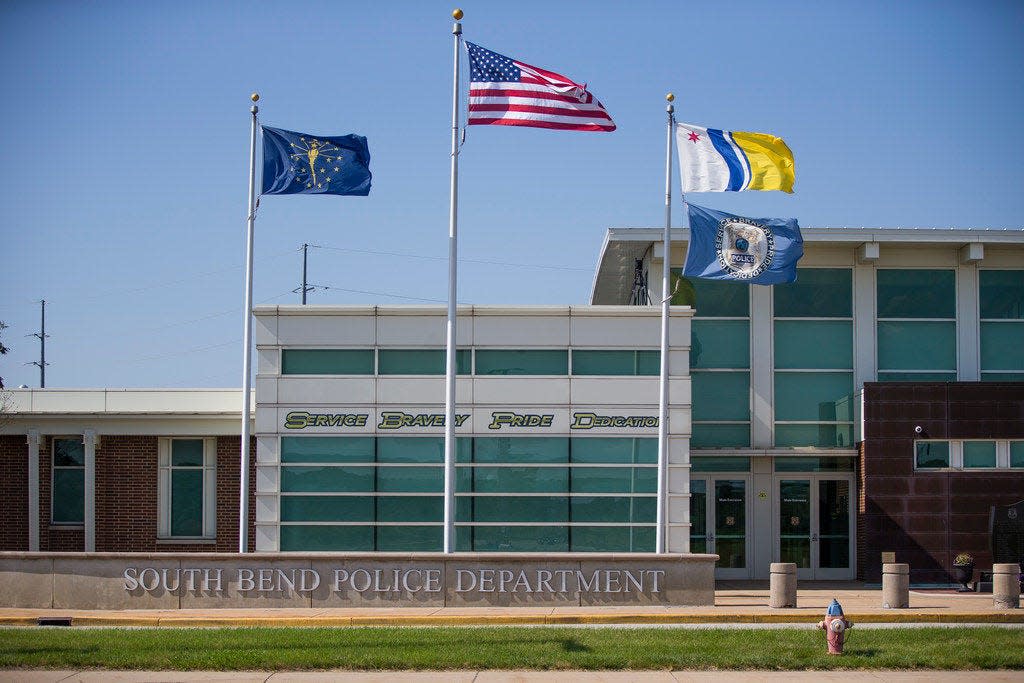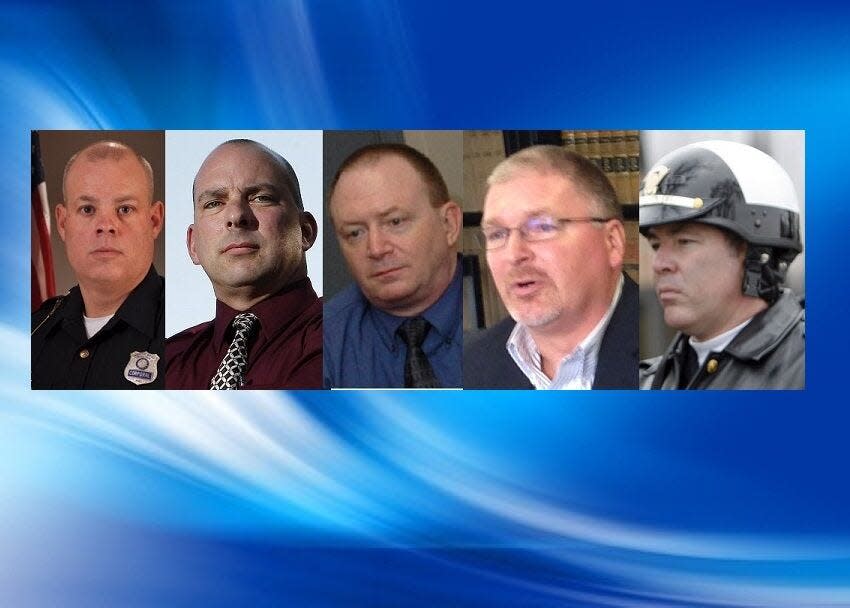Appeals court sides with officers in South Bend 'police tapes' case, paving way for a trial

SOUTH BEND — The legal battle to decide whether a series of audio recordings of South Bend police officers can be released is coming back to St. Joseph County.
The Indiana Court of Appeals on June 30 issued an opinion on the ‘police tapes’ case finding that former St. Joseph Superior Court Judge Steven Hostetler incorrectly ruled the officers lacked legal standing to challenge the Common Council’s efforts to obtain the tapes.
Hostetler’s ruling in May 2021 had cleared the way for the council to get the tapes — which allegedly contain racist comments and discussion of illegal activity — but the court of appeals’ opinion could set the case back on track for a trial.
'Because I'm innocent': Elkhart woman says she was wrongfully imprisoned for 17 years
“Despite this dispute having traversed numerous judicial proceedings in both state and federal courts for almost a decade, the fundamental question of whether any or all of these recordings constitute a violation of either state or federal wiretap laws has never been resolved,” Judge Terry Crone wrote in the opinion.
Daniel Pfeifer, an attorney representing the officers, said he’s happy about the decision and looks forward to arguing the case in front of a jury.
“We see the decision as a win and the case comes back to trial court for a trial,” Pfeifer said. “Basically they’ve wanted their day in court.”
Bob Palmer, an attorney for the council, said he is meeting with council members in an executive session Tuesday to discuss the group’s next steps. In a written statement, Palmer said the appeals court’s ruling had no bearing on the facts in the long-running dispute.
“We won the case in the trial court based on procedural issues, not the substantive merits of whether the recordings were legal or not. The court never reached a decision on that,” he said.
Palmer added the council may decide to appeal the recent ruling with the Indiana Supreme Court. Any appeal would have to be filed within 45 days, though Palmer said it appears increasingly likely the case will be decided at trial or a settlement.
Case history
The court of appeals’ ruling is the latest turn in a decade-long legal struggle over the tapes that has led to a federal criminal investigation, generated multiple related lawsuits and became a topic in the presidential campaign of former South Bend Mayor and current Transportation Secretary Pete Buttigieg.
The issue dates back to the winter of 2011, when a former communications director with the South Bend Police Department came across recorded phone calls on the line of Brian Young, a captain at the time, while she was troubleshooting equipment. Young had unknowingly inherited a telephone line that previous officers used to record calls.

The then-communications director, Karen DePaepe, has indicated some of the recordings contain racist language and comments that are “disturbing and possibly liable” to the police department, according to city and court records. She alerted then-police chief Darryl Boykins to the calls about two weeks later, at which point he allowed the recording to continue.
The existence of the recordings became public in early 2012, when Buttigieg demoted Boykins and fired DePaepe amid a federal investigation into possible violations of the Federal Wiretap Act. The Common Council demanded the recordings, but the city administration has refused to hand them over unless a court ruled it would not be illegal to release them.
The council sued and the officers counter-sued to block the disclosure of the recordings. The former officers are Brian Young, Tim Corbett, David Wells, Steve Richmond, Sheldon Scott, James Taylor and Scott Hanley. Corbett formerly served as commander of the St. Joseph County Metro Homicide Unit, while Wells and Richmond served as assistant commanders on the unit before it disbanded at the start of this year.
After nine years of bouncing between courts and procedural delays, the case was set to go before a jury in May 2021. However, in filings shortly before the trial date, the council argued that some officers settled their claims in the case while the rest lacked standing because testimony from DePaepe indicated they weren’t on the tapes.
Hostetler agreed with the council and with no one left to challenge the council’s subpoena, he ruled the tapes should be handed over.
The officers appealed a few months later and the decision from the court of appeals reverses all of Hostetler’s key findings.
The appeals court found that all officers maintain legal standing and that a jury must decide whether the tapes were made illegally. Hostetler also had ruled that recordings made prior to Feb. 4, 2011 — the date DePaepe apparently discovered the recordings on Brian Young's line — could be released; however, that issue also is open to litigation following the court of appeals ruling.
Should the case go to trial, the case will revolve around whether the officers gave their “implied consent” to be recorded on department phone lines.
Email Marek Mazurek at mmazurek@sbtinfo.com. Follow him on Twitter: @marek_mazurek
This article originally appeared on South Bend Tribune: South Bend 'police tapes' case could see trial after appeals court ruling

